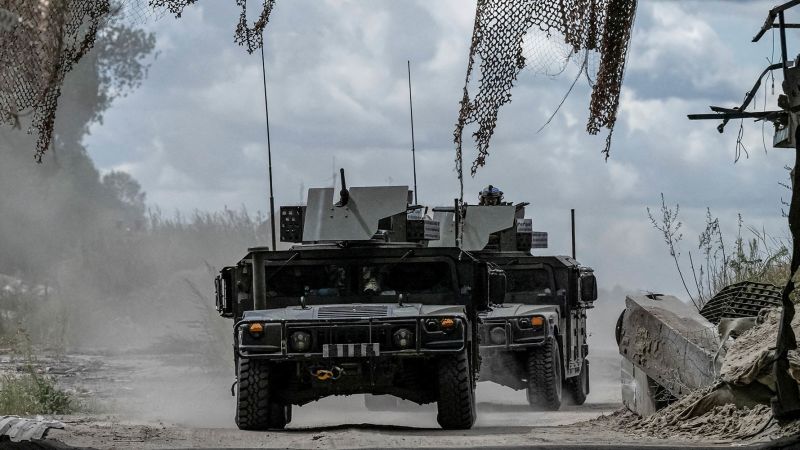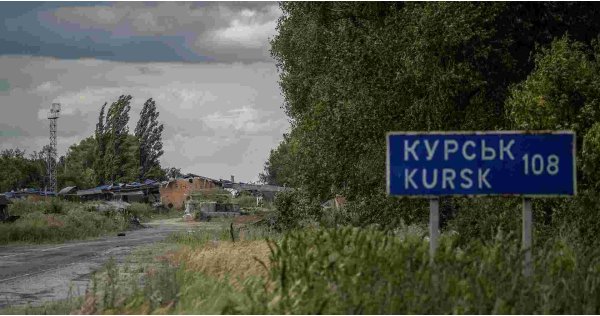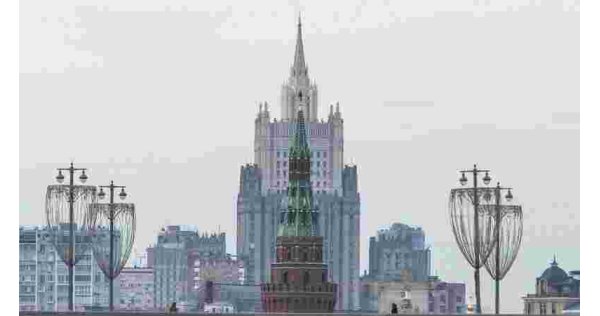Ukraine claims its forces are advancing further into Russia's Kursk region, a week after launching a surprise cross-border incursion. Ukrainian President Volodymyr Zelensky said Wednesday that his forces had advanced 1 to 2 kilometers in the region since the start of the day. Kyiv claims to have captured around 1,000 square kilometers (386 square miles) of Russian territory since the incursion began.
Zelensky also said 100 Russian servicemen had been captured, adding that this would "accelerate the return of our guys and girls." Video footage posted by AFP at the Ukrainian border crossing between the Sumy region and Russia's Kursk region showed a Ukrainian truck carrying blindfolded men in Russian military uniform traveling away from the Russian border. CNN has reached out to the Ukrainian military for comment on the video.
A Ukrainian minister said the aim of the operation in Kursk was to create a "security zone" on Russian soil. Iryna Vereshchuk, the Ukrainian minister for reintegration of temporarily occupied territories, said that the operation was designed to protect the border regions of Ukraine, primarily the border of the Sumy region, which has seen persistent Russian artillery and missile fire throughout the war.
Meanwhile, Russia has been forced to pull reserves from key battleground areas in Ukraine and Russian-occupied Crimea in an effort to hold back Kyiv's advances. Dymtro Kholod, commander of the "Nightingale" battalion, told a CNN team on the ground in Sumy that the military had "information" suggesting Russian soldiers were being pulled from Zaporizhzhia, Crimea and Kharkiv to halt Kyiv's forces.
The incursion, a major embarrassment for the Kremlin, has prompted Russia to take peace negotiations off the table. The Russian Foreign Ministry's special envoy, Rodion Miroshnik, said at a briefing on Wednesday that Moscow will be "at minimum" putting the talks with Ukraine on a "long pause." Peace negotiations between the warring nations have proven unsuccessful since the start of the war in February 2022.
Russia's border region of Belgorod declared an emergency on Wednesday after new attacks by Ukrainian forces. Belgorod Gov. Vyacheslav Gladkov said in a video message that the situation in the region "continues to be extremely difficult and tense." The declaration came after Belgorod began evacuations on Monday as a result of Ukrainian advances.
The incursion marked the first time foreign troops had entered Russian territory since World War II. Kyiv didn't officially acknowledge its troops were operating inside Russia until several days later. Regional authorities are now appealing to the Russian government to declare a federal emergency.
Two locations in Belgorod, the city of Shebekino and the village of Ustinka, had been attacked by Ukrainian drones, Gladkov said. There were no casualties but two residences were damaged.
Russia's National Guard said on Wednesday that it had tightened security around the Kursk nuclear plant following the incursion. The National Guard, known as the 'Rosgvardiya,' said that it had taken "additional measures" to protect the power plant. Last week, the International Atomic Energy Agency said it was "monitoring the situation on the reported military activities taking place in the vicinity of the Kursk Nuclear Power Plant," with its director general, Rafael Mariano Grossi, urging both sides to "exercise maximum restraint" to avoid "a nuclear accident."
Meanwhile, Russia's defense ministry said it had destroyed dozens of drones and four tactical missiles over the Kursk region, part of a barrage including 117 "aircraft-type" drones downed by the country's air defenses overnight. The southwest region of Voronezh, which borders both Kursk and Belgorod, destroyed more than 35 Ukraine-launched drones, Gov. Aleksandr Gusev said Wednesday. There were no casualties, but properties, vehicles and municipal infrastructure were damaged by falling debris.
A statement by the General Staff of the Ukrainian Armed Forces on Wednesday claimed that Ukraine's Air Force "destroyed a Russian SU-34 fighter-bomber" in the Kursk region on Tuesday night.
Since the incursion began, tens of thousands of Russians have fled their homes while Moscow scrambles to contain the attack, imposing counter-terror operations in Kursk, Belgorod and another border region, Bryansk. On Monday, Kyiv claimed to have gained control of nearly the same amount of land that Russia had seized so far this year, although that is still dwarfed by the total Ukrainian territory held by Russia since the conflict started in 2014.
On Tuesday, Ukrainian President Volodymyr Zelensky said its forces were in control of 74 settlements in Kursk and that they are making preparations for "next steps" in the region. Russian President Vladimir Putin has vowed to "kick the enemy out" of Russia, though his troops have yet to stop the Ukrainian advance. US President Joe Biden addressed the incursion on Tuesday, saying he was receiving regular updates from staff and that it was "creating a real dilemma for Putin."
Ukrainian forces advance in southern Russia, capturing dozens of enemy soldiers, Zelensky says
Ukraine says its forces are advancing further in Russia’s Kursk region, a week after the start of its cross-border incursion that has seen Kyiv’s forces claim to have captured enemy soldiers and destroy a Russian fighter jet.




